
The Ultimate Guide To Scrap Gardening And 20 Plants That You Can Regrow At Home
Published: 25/01/2023 | Updated: 22/04/2023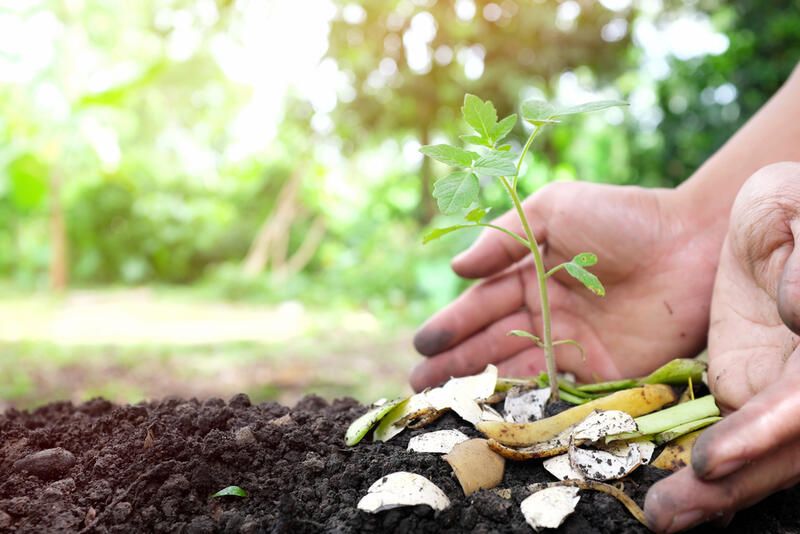
The idea of scrap gardening is to grow plants from kitchen scraps, such as carrot tops and celery stalks.


When you do this, you can save money on buying new plants, and you'll also have an easier time keeping your garden looking great!
The best part about scrap gardening is that it's really easy: All you need is some soil and a few pots.
Here is all you need to know about creating a scrap garden and 20 different types of plants that are perfect for planting at home:
What Is Scrap Gardening?
Scrap gardening is a method of growing your produce from kitchen scraps. It’s a great way to reduce food waste, and it can be done on any scale—in your backyard, in containers on your balcony, or even on the windowsill in your apartment.
The best part about scrap gardening is that you don’t need any special equipment or space; all you need is some soil and seeds (or seedlings), and perhaps some fertilizer if you want to get fancy.
Once you have these basic supplies, there are tons of different plants that will grow just fine in pots outside as well as indoors!
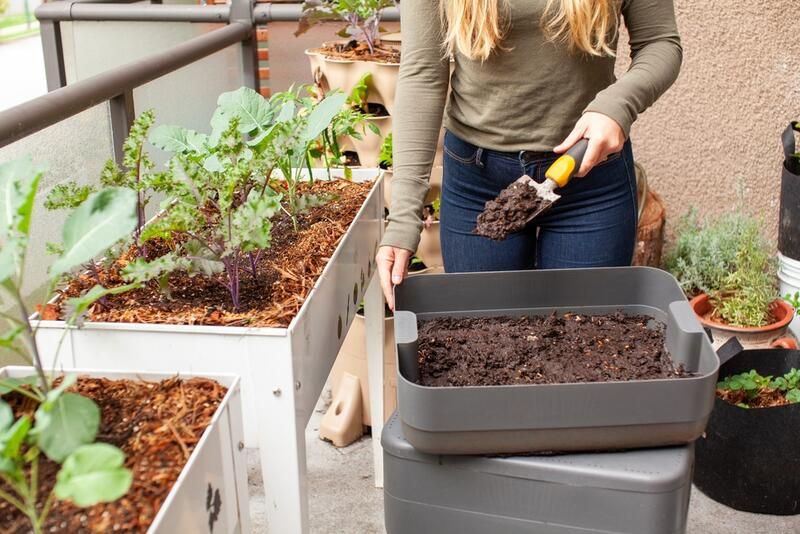
What Are The Benefits of Kitchen Scrap Gardening?
There are many benefits to scrap gardening. The first, of course, is that it reduces food waste. This is especially important in the modern era with so much emphasis being placed on sustainable living concepts and reducing carbon footprints.
Another benefit of scrap gardening is that it can help you grow a great outdoor garden without having to spend a lot of money on seeds or seedlings.
You can also use vegetable and fruit scraps from your own kitchen or other sources around the house to cut down on how much money you spend at the grocery store as well as reduce your carbon footprint.
What Do I Need to Get Started On Scrap Gardening?
You can do scrap gardening with just a few tools and supplies.
-
Potting soil: You'll need something to grow your plants in. Any potting soil will work, but you may want to choose a lightweight variety if you plan on transporting your plants around often.
-
Moist soil: While some scrap gardening enthusiasts prefer to use loose compost instead of potting soil, the majority of people find it easier to care for their scraps when they're growing in pots with moist soil.
-
Seeds or cuttings: If you want to regrow broccoli or carrots, you'll need seeds or cuttings from those particular plants (some companies sell seed packets specifically for scrap gardening).
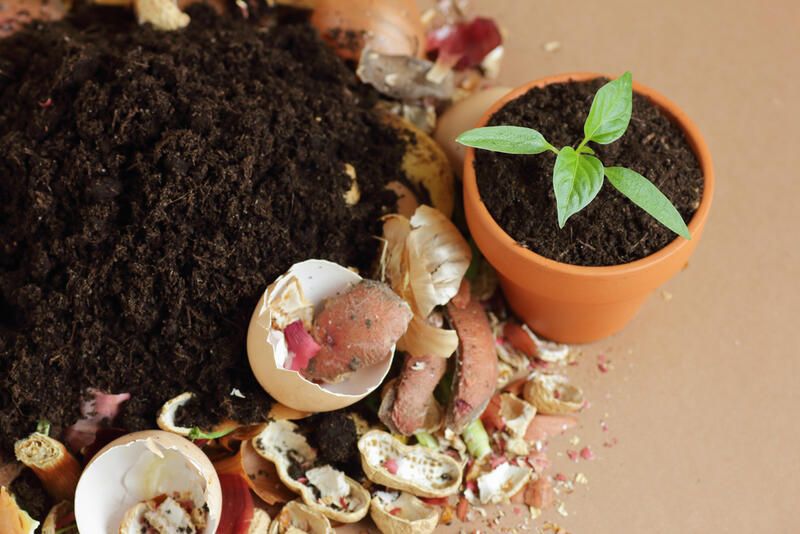
What Are Some Fruits That I Can Regrow From Scraps?
Lemons, oranges, pineapples, and grapefruits are all easy to regrow from scrap parts. So are tangerines and clementine fruit (also known as mandarin or satsuma). Pomelos are also commonly sold in supermarkets.
What Are Some Veggies That I Can Regrow From Scraps?
Onion tops, carrot tops, and celery tops can be regrown. So can romaine lettuce, bok choy, cabbage, and ginger root.
If you have fennel bulbs in your fridge that are about to go bad on you, you can regrow them as well. Beets are also great for regrowing from scraps because they grow quickly and easily.
If you love avocados as much as we do here at ReGrowers HQ then we have good news for you: You can also regrow an avocado tree from the pit of a fully ripened avocado!
It might take some time but it's definitely worth doing if getting fresh avocados from your own garden is important to you!
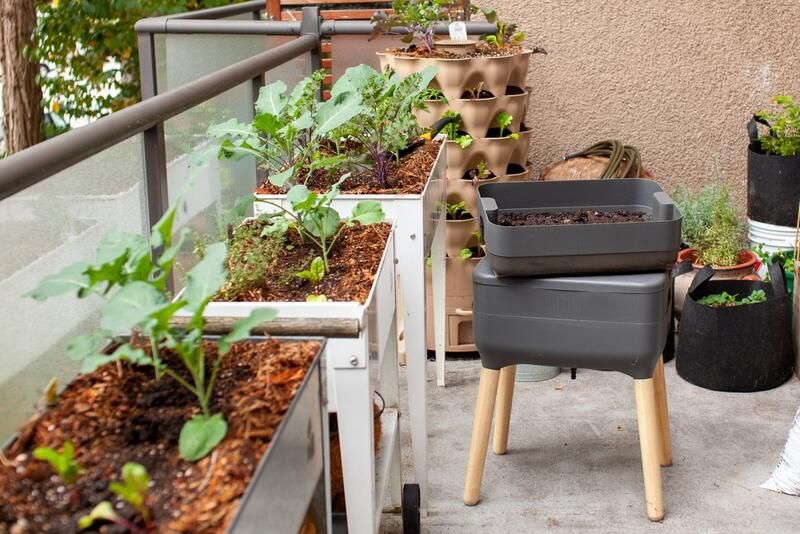
What Are Some Herbs That I Can Regrow From Scraps?
The best herbs to regrow from scraps are ones that can be easily propagated from cuttings or stems, such as basil, oregano, and thyme.
Mints also grow very well in pots. Other herbs that you might find growing in your garden include chives and sage.
In general, any herb with a woody stem will be able to regrow from a cutting.
If you have an abundant supply of fresh herbs but don't have time to replant them all individually each year, consider growing them indoors on your kitchen windowsill or on your patio table instead!
The Best Plants For Scrap Gardening
There are so many varieties of herbs and vegetables that you can regrow at home. Here's a list of the best plants for scrap gardening:
-
Sweet potatoes
-
Red onions
-
Carrots
-
Basil
-
Winter squash

These herbs should easily grow on your windowsill or your kitchen countertop!
To learn more about these fabulous plants, check out our gardening guides on shrubhub.com.
1. Sweet Potatoes
Sweet potatoes are a good source of vitamin A and iron, and they're high in fiber and low in fat.
Sweet potato is also a good source of potassium, magnesium, and manganese. It's especially rich in folate—a B vitamin that helps prevent birth defects like cleft palate.
Additionally, sweet potatoes contain plenty of vitamin C to keep your immune system strong during the cold season.
2. Red Onion Tops
Red onions are a good source of vitamin C and beta-carotene which is an essential nutrient for maintaining healthy skin, hair, and nails.
They can also help to protect cancer cells from spreading through the body by preventing them from making new blood vessels that allow tumor growth.
Red onion tops have many uses in the kitchen including using as a garnish on burgers or salads, or you can use them to make pesto!
3. Carrots
Carrots are one of the easiest vegetables to regrow. You can grow them from the tops, root end, sides, and even from whole carrots that have been cut into slices.
Carrots are packed with vitamins A and C—perfect for a healthy snack!
When you're ready to start growing your own carrots from scrap, here's what you'll need:
-
An empty container with drainage holes (like a yogurt container)
-
carrot greens
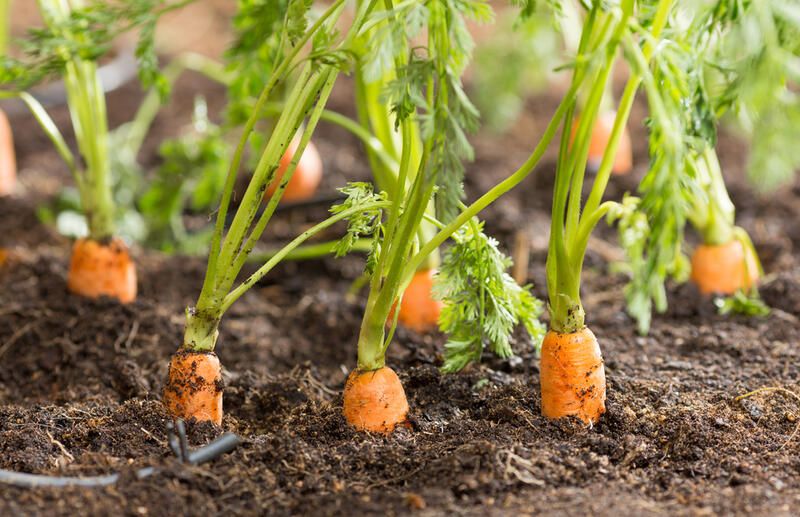
4. Basil
Basil is a highly versatile herb that can be used in many different recipes. This makes it a great choice for anyone looking to grow some plants at home.
Basil plants grow best in pots or the ground, but can also be grown indoors if you have enough light and warmth (usually 60 degrees Fahrenheit).
The leaves of basil are edible and they can be used fresh or dried according to your recipe needs.
Basil is an excellent source of iron, and vitamins A and C, making it a healthy addition to any meal!
5. Winter Squash
Winter squash is a great source of vitamins A and C, fiber, potassium, and manganese.
Winter squashes can be grown outdoors in certain climates or as houseplants when it's too cold to plant outside.
Here are some tips on how to regrow your own winter squash:
-
Cut the stem off just above where the vine starts.
-
Set the cuttings in soil or water until they show new growth (about two weeks).
-
Winter squash needs lots of sunlight so set them on a sunny window or in a greenhouse if this is possible for you!
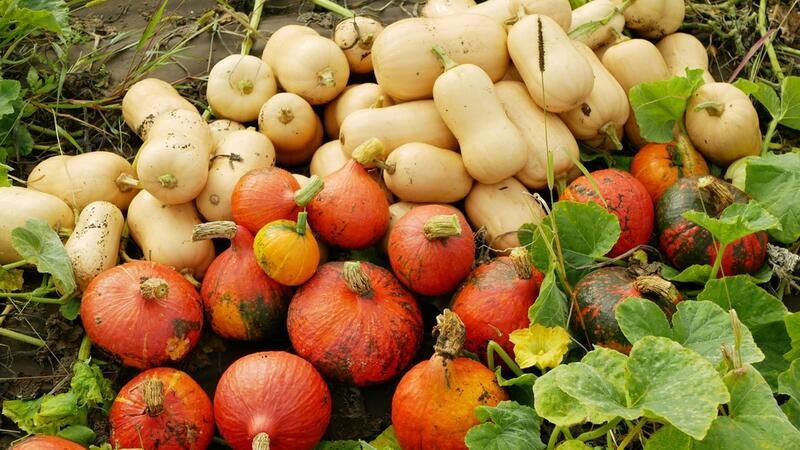
6. Celery
Celery root is a very easy plant to regrow from scraps. If you have celery stalks, you can simply break off the bottom a few inches and plant them in soil.
You can also regrow celery from the bottom of the roots themselves. Simply break off small sections of roots, and stick them into pots with moist, not damp soil.
This will help speed up the process of growing new stalks because it gives them an extra boost of nutrients!
The health benefits of celery root include high levels of vitamin C, which boosts your immune system during cold weather. It also contains potassium, magnesium, and calcium, which are important minerals that are vital for maintaining healthy bones and muscles!
7. Romaine Lettuce
Romaine lettuce is a vegetable crop that has been grown for thousands of years. It’s also known as Cos lettuce or Cos chicory, and it is a member of the endive family.
While romaine lettuce may not be considered a common garden plant, it can be regrown from scraps with very little effort!
This makes it an ideal candidate for scrap gardening, which involves reusing material that would otherwise go to waste.
Romaine lettuce is actually native to the eastern Mediterranean region and was used by Romans as a salad green and garnish in their cooking.
You can expect this variety to grow tall and produce thick stalks with large leaves.
This type of lettuce will thrive in temperatures between 70°F (21°C) and 75°F (24°C), so make sure your climate meets these conditions before planting them outside.
If you live in an area where winters are cold enough for frost, keep your plants indoors until spring arrives again each year!
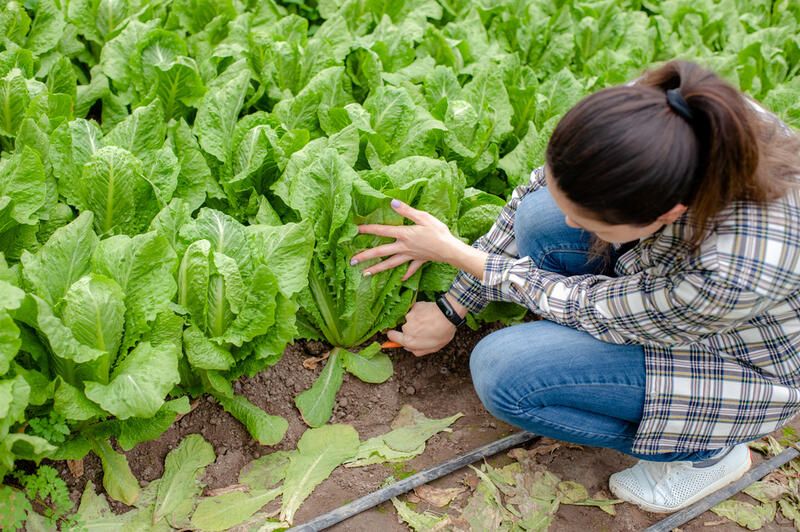
8. Bok Choy
Bok choy is an Asian vegetable that can be used similarly to the way you would use lettuce or cabbage.
If you’re looking for an alternative to lettuce, bok choy is a great option because it has a similar texture but much more flavor. You can also substitute it for spinach in your favorite recipes!
Bok choy grows best in cool weather and grows quickly under ideal conditions, so it’s perfect for springtime gardening!
9. Cabbage
Cabbage is a vegetable with a short lifespan. If you want to keep it around for a longer period, try regrowing it.
To do this, cut off the bottom of the head and place it in water. It will take about seven days for the roots to develop. Once they start growing out of the head, plant them in potting soil or a compost bin, and make sure to keep them moist until they develop new leaves!
Once they're ready (in two months), place them outdoors in direct sunlight so they can grow into full heads again!
10. Pineapple
Pineapples are tropical plants that belong to the bromeliad family.
Native to southern Brazil and Paraguay, pineapples are grown in tropical and subtropical climates such as Hawaii, Florida, and California.
The plant is a perennial plant and can live for 3-4 years after it has been planted in your garden.
Pineapples are also known for their delicious sweet and juicy fruit with a fragrant aroma, which you can regrow from kitchen scraps.
Pineapple contains high levels of vitamin C which helps fight off infections like colds or flu, while also boosting your immune system. You can eat fresh pineapple to boost your immune system or drink it as juice along with other natural remedies such as lemon or ginger!
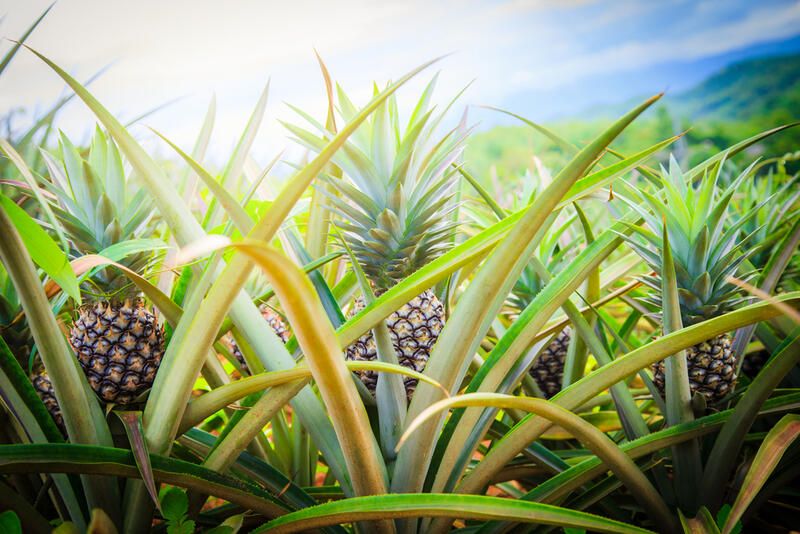
11. Ginger Root
Ginger root is the underground stem of a plant that has been used for thousands of years as an herbal remedy. It's also one of the easiest plants you can grow in your kitchen!
Ginger root is a perennial plant that prefers tropical climates and grows best in warm, moist soil.
If you are growing ginger root from seed, it will take about 2 months for your plant to mature enough to harvest its first roots.
Once harvested, you can replant them immediately or store them in an airtight container until ready for use.
12. Fennel Bulb
The fennel bulb is a plant that can be regrown from scraps. This herb is an excellent source of vitamin C, fiber, and antioxidants. It also contains calcium, iron, potassium, and manganese.
The fennel bulb should be planted in full sun during the summer months and placed outside in your garden or on your balcony, or on the porch during the winter months if you live somewhere warm enough to keep it alive.
13. Beets
Beets are one of the easiest plants to regrow from scraps. The greens are great in salads and soups, while the roots can be used in stews or roasted.
Beets offer a huge nutritional bang for your buck: they’re high in vitamins A and C, as well as potassium, magnesium, and calcium.
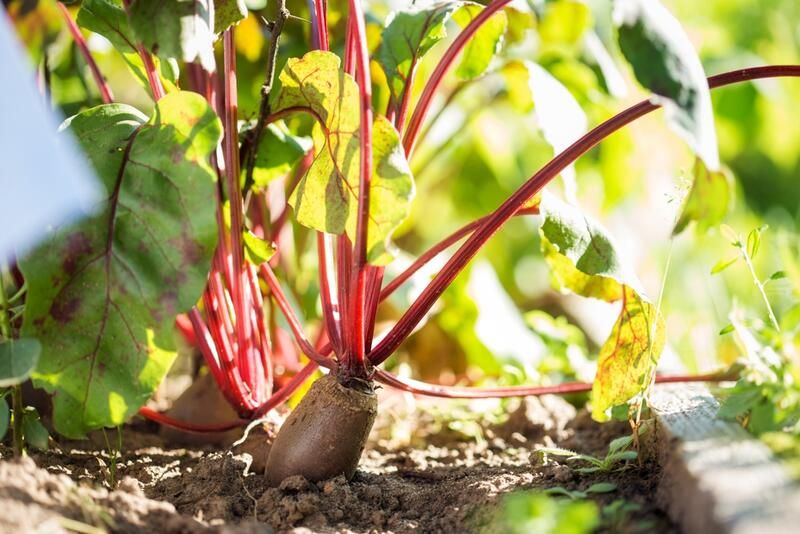
14. Avocados
If you're a fan of avocados, this is great news. You can regrow avocados from the pit, leaves, and stem of the plant.
This means that if your avocado plant dies or you accidentally lose a piece of it to the compost pile, there's no need to pick up seeds or buy another plant—you can just break off a little bit and grow yourself some new ones.
The best part about growing avocados from scraps is that it's so easy—a fun project for kids especially!
All you need is:
-
The bottom half of an avocado
-
A glass jar filled with water
15. Lemongrass Stalks
Lemongrass is a tropical plant and perennial herb. If you're thinking of growing any lemongrass for scrap gardening, be sure to check the weather in your area first.
Lemongrass does best when its environment has long hot summers with mild winters, so if you live somewhere in the United States that fits this description, feel free to start growing some!
16. Broccoli
Broccoli is a good choice for scrap gardening because it's easy to regrow from scraps. You can grow broccoli from the crowns (the main part of the plant), the stems, or even the roots.
Broccoli is a cool-weather crop and should be planted in spring or fall. It takes about 4 months to mature enough to harvest, so make sure you plant around May 1st if you want it ready by September!
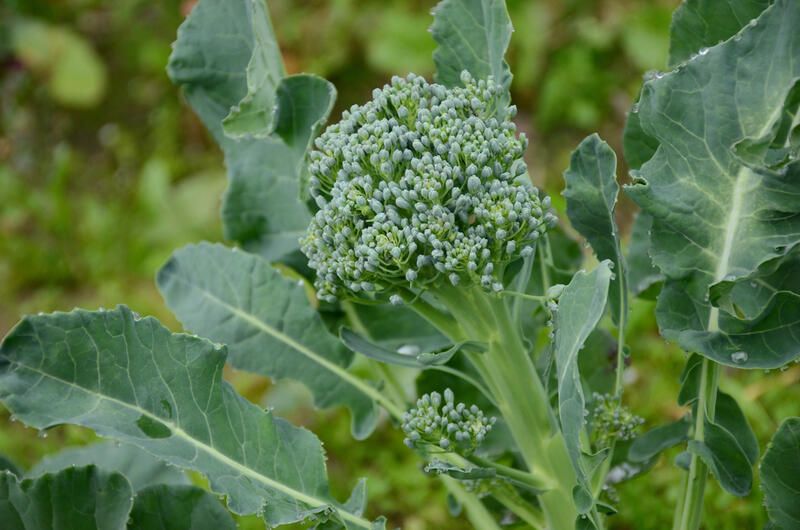
17. Cauliflower
If you love cauliflower, you can grow it yourself. Cauliflower is a cool-weather crop, but it does not like to be planted in the spring and harvested in the fall.
Rather, it prefers to be seeded in late summer or early fall so that it will mature over winter and be ready for harvest when temperatures warm up again.
While there are several ways to start cauliflower from seed (including directly sowing into the garden), we recommend starting off with some purchased transplants or mini-cauli seeds.
Cauliflower plants form tight heads that look like miniature cabbages on long stems: they're white when immature but turn greenish yellow when they reach full size because of their color pigments called anthocyanins (which also give watermelon its rich red hue).
The leaves are dark green with an arrowhead shape; these leaves actually protect the plant's curd as it matures so no sunlight reaches inside.
18. Lettuce
Lettuce is an easy plant to grow, and it's also relatively quick. When grown from seed, lettuce takes about 3 weeks to reach maturity.
But if you're looking for a fast way to get your hands on some fresh greens, try regrowing lettuce from its stems or leaves instead!
To regrow lettuce from its core simply place the core in water and watch as new leaves sprout out of every opening.
To grow from cuttings or seedlings, place them in soil with good drainage and keep them moist but not soggy at all times. As long as your environment stays between 65-75 degrees Fahrenheit (18-24 Celsius), you should be able to get a healthy harvest!
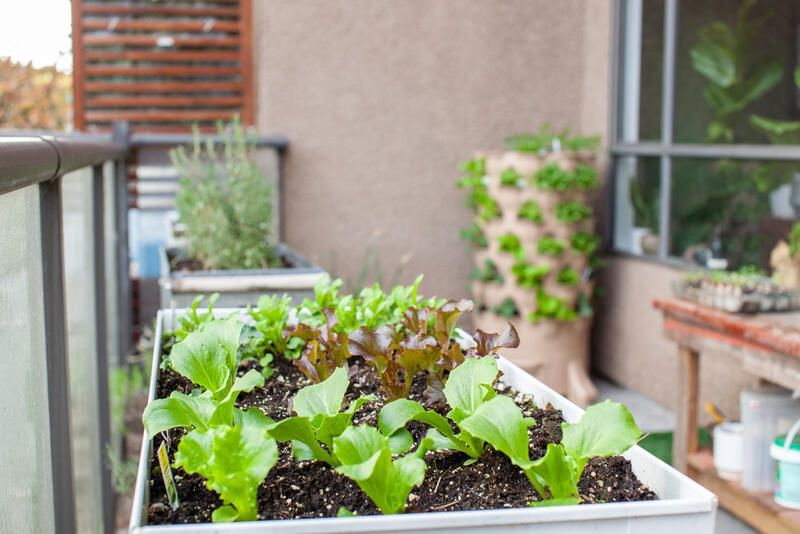
19. Scallion (Green Onion)
Scallions are also called green onions and are a type of onion. These plants can grow from small bulbs and are usually eaten raw or cooked.
Scallions are often used in Asian cuisine because they have a sharp flavor that compliments other flavors well. If you don't want to cut off the green tops, you can plant scallions from seedlings too!
20. Rosemary
Rosemary is a perennial herb that grows well in the garden or indoors. It's a great choice for kitchen scrap gardening because it can grow from cuttings taken from other plants, so you don't need to start with seeds.
Rosemary is also easy to regrow from scraps of the stem. If you have one in your kitchen, pull off some stems when they get dry and stick them into pots of dirt or water-filled glasses until new roots form.
Grow Your Own Food!
We hope that we’ve helped you on your journey to becoming a scrap gardener and introduced you to some plants that you can start your scrap garden with.
There are many benefits of kitchen scrap gardening and if done correctly, it can be a very rewarding experience. You will save money, eat healthier high-quality organic produce, and get outside more often!
Finally, don't hesitate to contact ShrubHub's plant experts for a free consultation session and start growing healthier sturdier plants!


